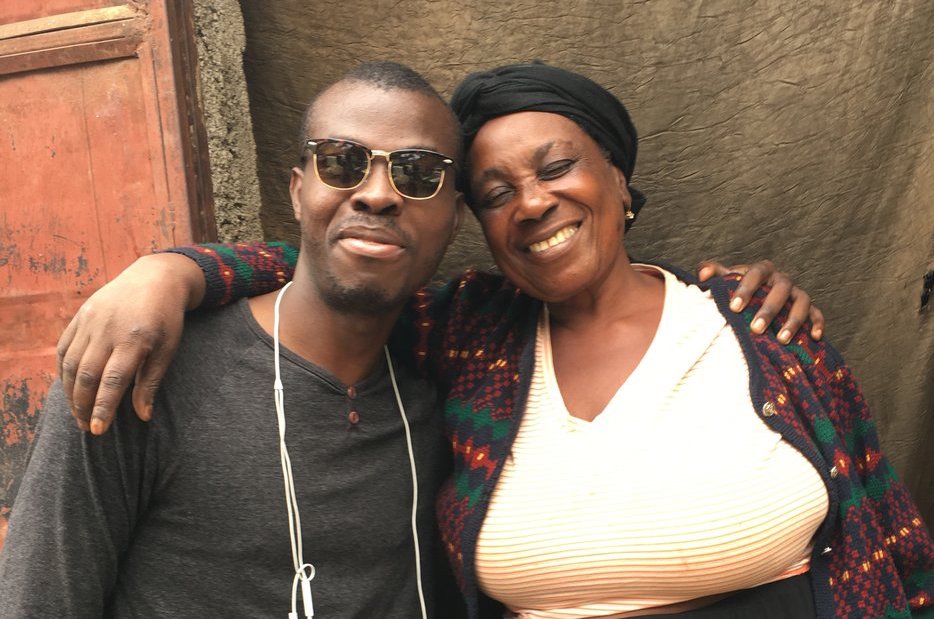This post is also available in: Kreyol
The Fight For Haiti takes a deep dive into why the “international community” supports the corrupt politicians and business persons who stole the PetroCaribe money and the dream of millions.
Etant Dupain
Etant Dupain’s last documentary, Madan Sara, started off with a blog post he wrote and published right here on WoyMagazine.com. Since then, we have had the pleasure of seeing the idea come to life, celebrating the stories of these women, and shedding light on their desperate need for support and resources. Etant Dupain has now announced that he plans to release a new documentary. We had a chance to talk with him and find out what’s in the pipeline for him and his team.

We fell in love with the beautiful women in the Madan Sara film. How are Madam Clotilde and Madam Monique doing since the release of the film?
Madam Clotide and Madam Monique are doing ok. They’re well physically, but not morally. Their businesses have been crumbling because of the current political crisis in Haiti. Madan Sara is one of the groups affected the most by the systemic insecurity installed in the country by gangs with political ties. I made sure to stay in touch with them and some of their kids because we need to keep screening the film in Haiti and I would like for them to participate. One of the most successful screenings we had at the Université Quisqueya (UNIQ), was organized by Monique’s son who’s a student there. I am still planning on working with them to resume public screenings of Madan Sara as soon as we can.
You’ve recently announced your new film The Fight For Haiti. The title makes me think of the women in the Madan Sara film and their struggle to make ends meet in the midst of political and economic violence. What is the connecting thread between Madan Sara and your upcoming documentary?
With The Fight For Haiti, I am hoping to add some context to the current crisis in Haiti. Haiti makes headlines for many things, but not for the fight for the soul of the country. I deeply believe the fight against corruption and impunity in Haiti is a fight for the soul of the country. This is not a simple fight. This is a fight where citizens are confronting a corrupt elite with no real international support or solidarity, while the corrupt elite has the full support of the so-called international community.
Corruption is a major problem in Haiti. It is unbelievable to watch how certain countries react to the anti-corruption movement. The Fight For Haiti takes a deep dive into why the “international community” supports the corrupt politicians and business persons who stole the PetroCaribe money and the dream of millions.
I feel lucky to be able to tell our own story and show the world what’s really going on, instead of making headlines after major man-made disasters or natural ones.
The common thread of your work is how it highlights the urgency for political action. What do you hope this next film will accomplish?
The future of the anti-corruption and impunity movement hangs in the balance. Haitian politicians and the business elite with the total backing of the CORE group successfully dismantled the movement. With massacres, intimidation, and putting the whole country under siege and making it impossible to protest.
I hope to show the world the incredible sacrifice Haitians are making to fight for a better Haiti. I am hoping this film will give the movement some well-needed oxygen as Haiti is at a standstill. Millions of Haitians demand accountability and I don’t see a way forward without some form of accountability in the Petrocaribe scandal. A Petrocaribe trial can be a new beginning for Haiti.
I think the diaspora can play a bigger role in the fight against corruption and impunity, and I fully intend to use the film to mobilize more people in the diaspora to join the fight.
What are some of the lessons you’ve learned while making your last film that you are bringing into this new project?
The first lesson I learned is to be patient. It took me nearly five years to make Madan Sara. I want to take my time and tell this story well. For Madan Sara, no officials talked to me. I am facing the same situation, even worse with The Fight For Haiti. But my team and I will tell the story anyway.
I learned how one story can impact major changes, both structurally and personally. I talked to the head of the Haitian Central Bank (BRH), Jean Badin Dubois, who told me his mom was a Madan Sara. We talked about Madan Sara and the lack of access to credit. According to him, until recently most microfinance institutions in Haiti weren’t regulated. They gave out loans and set their own interest rates and ripped off people like the Madan Sara. BRH recently changed that and is currently implementing regulations to make sure microfinance institutions in Haiti follow all the rules and respect the interest rates set by the Central Bank. If well implemented this can be very useful for thousands of Madan Sara who rely on very expensive loans.
On a personal level, I received countless emails and messages from Haitians all over the world talking about their parents. Some admitted they never knew about the Madan Sara as described in the film. For many, Madan Sara was a bad thing and some folks realized their parents were Madan Sara after watching the film. I am happy with the feedback and we’re just getting started as most people in Haiti haven’t had a chance to watch “Madan Sara”.
Who are you collaborating with for this next project?
I am working with the same “Madan Sara” team. Ou pa fè chanjman nan yon ekip k ap genyen.
I am the Creator, Director, and Executive Producer on this project, but this project is here because of a great collaboration with matenmidiswa production, led by Haitian-Canadian artist, Manuel Mathieu. Wesley Lainé is one of our Co-Executive Producers and Lunise Cerin is our Editor. We have a great team and we have more people working with us. We won’t be able to name all of the names because of safety issues, especially for folks who reside in Haiti.
The trailer will be out on August 14, the same date Gilbert Mirambeau Jr. posted the first #KotKòbPetroCaribeA tweet back in 2018.
My team and I are hoping the trailer will add to the debate about the need for accountability.
